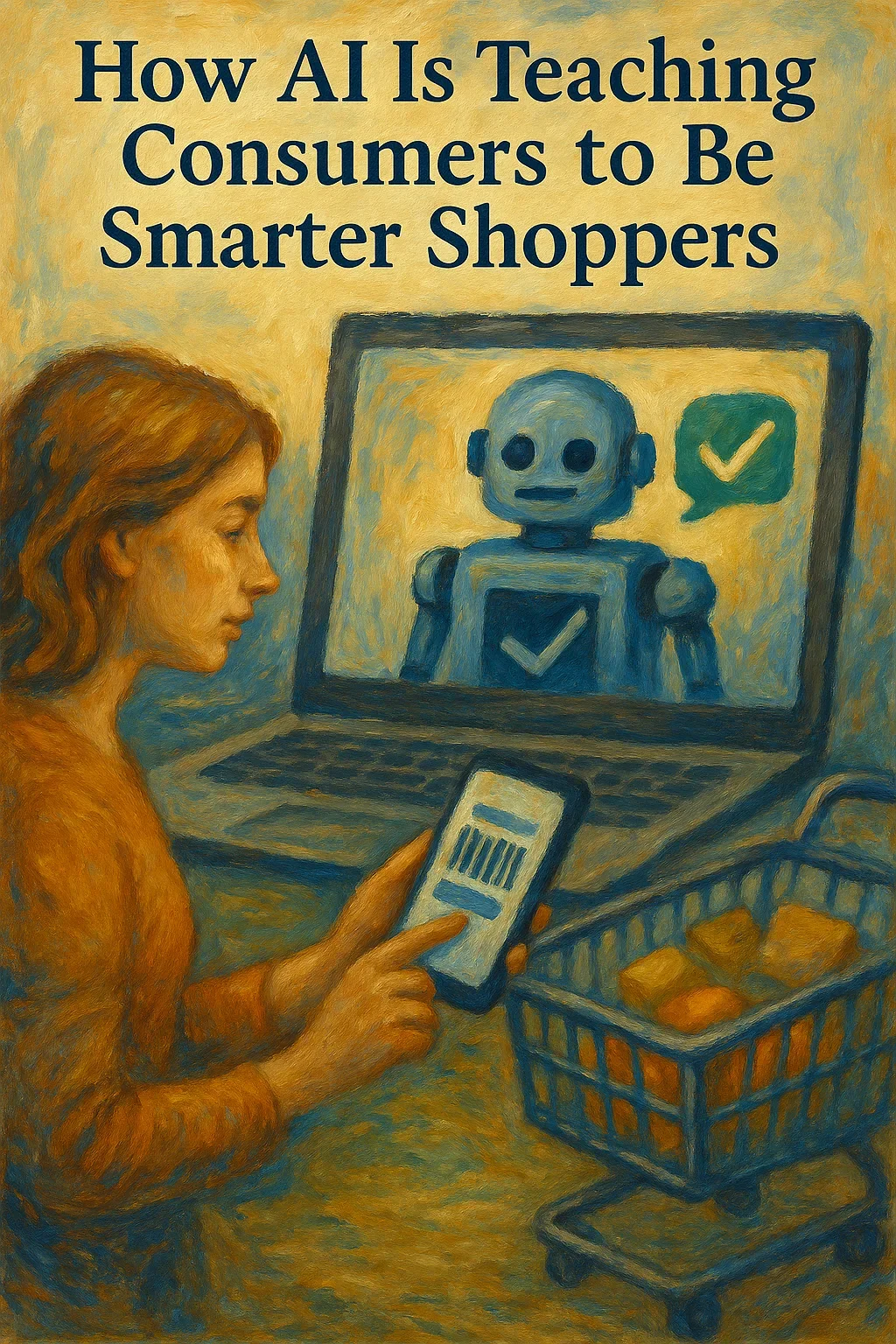E-commerce changed the way we shop. Now AI tools are transforming the game again, in smart ways.
Just a few years ago, concerns about artificial intelligence were mostly focused on fakery and misleading info. But we’re realizing a positive shift toward personalized, targeted advice that helps us zero in on exactly what we want and bypass a noisy advertising landscape.
Tech that curates the shopping journey—best deal, right product, fast delivery—quickly became something smart shoppers can’t live without.
Let’s examine the influence of AI shopping hacks through the tools and app integration that have become indispensable.
How Search Engines Became Old-School Tech
Have you noticed a smoother research and purchase experience recently? Reports indicate that U.S. shoppers under 40 could drive $4.4 trillion in AI-influenced spending before 2030. That’s because we’ve seen AI tools flow into all phases of the purchasing cycle, including after-purchase value in the form of rebates, points, low-cost reordering, and reminders.
Essentially, AI integration has removed friction.
AI can now take over much of the time-consuming legwork that existed when opening multiple tabs, typing queries into Google, and even calling stores was the norm. And it covers ground in a fraction of the time.
Even better—AI search results are tailored to eliminate wading through unwanted fluff. Not long ago, narrowing down general searches with Google took a few tries, multiple clicks, false starts, and frustration. You’d eventually get there, but it felt like trying to speak a foreign language with hand gestures and improv.
AI search engine optimization incorporates your relevant framework of data, including location and previous search queries. Yes, it remembers where you are and what you bought last time. And while this pinpoint accuracy may feel unnerving at first, customers are quickly adapting to the convenience of “mind reading” for the sake of elevated service.
Accurate, faster, better, beats doing things the slow way.
Recommendations Fast-Track Satisfaction
Spotify and YouTube recommendations show us how well AI guesses what you’ll like based on what you’ve already chosen. This predictive feature is one way AI influence show people shop online.
AI marketing integration lets companies analyze your preferences, relevant trends for people like you, and search intent—that’s the mind-reading part. Increasingly, offers you’re shown are more likely to hit the sweet spot. Whether you realize it or not, you’re more likely to buy what you see because AI ad calibration is targeted.
Personalization makes shopping more convenient, and it levels up our expectations.
Smart Comparisons Lead to Quick Decisions
Comparison tools are taking over manual product comparison that we used to find tedious.
E-commerce shopping tools are expanding daily, with ChatGPT, Perplexity, ViSenze, Shopmate, and many others available for download or already integrated into the websites we browse.
Even in niche B2B spaces, tools like Teebot, an AI product finder, from A.M. Custom Clothing are making product discovery faster and more efficient, bringing smart comparisons even in specialised B2B markets.
Whether debating internet plans, cash back credit cards, or food delivery, AI can run down the entire list of pros and cons in a blink, highlighting a clear winner every time. And it often does this with a little helpful commentary as the cherry on top.
Complex datapoints are rearranged into clear visuals in a millisecond. If you don’t vibe with the way a business breaks down its features, AI can rearrange it using customer reviews, fee totals, benefits, and long-term value in any format you choose.
Want to see a side-by-side graph pitting your five favorite brands against each other? It’s ready almost as soon as you’ve imagined it.
That means even big purchases like cars or homes can be made confidently, with less time spent consulting human salespeople and kicking tires.
Gaming the System Makes Shoppers Smarter
Shady contracts may soon be a thing of the past, too. AI tools are scanning and summarizing info faster than we ever have. Mile-long terms of service and fine print don’t go unread anymore. Nearly everyone has a personal tale of being duped by tricky contracts, but now that shoppers can flag potential issues before they buy, its forcing companies to step up their game.
Having an accountant, lawyer, and data nerd in your pocket is a secret weapon against regrets when handing over your credit card.
Apps that revolve around frequent payments and payouts have adopted AI-powered tools for enhanced safety and customer trust. For instance, casinos.com users expect easy access to the best available options and the highest payout rates for online slot games. Players get side-by-side comparisons of odds, payout percentages, and terms that keep things fun and stress-free.
Tech and phone plan shopping doesn’t require a degree in jargon decoding anymore. AI contract comparisons are often the first results shoppers see online, before company websites and persuasive ads.
Straight to the point, getting the full picture up-front means savvier choices are made.
Across industries, AI enhancement has subtly convinced consumers not to settle for purchasing blindly, and it’s made vague or misleading marketing all but obsolete.
Perks of Having a Personal Shopping Assistant
Imagine you have a genius best friend who tags along on every shopping trip. They’ve got informed opinions about the products that grab you. They can tell you instantly whether it’s a good deal, better than the competition, or cheaper down the street.
Whether it comes to food, fashion, cosmetics, or even glasses, AI shopping assistants will let you know if that shirt looks good on you or the snacks have bad ingredients—just like a brilliant bestie.
As we adapt to AI helping us shop and voice search feels like second nature, we’re beginning to wonder how we ever lived without it.
The AI-Assisted Consumer Future
Increasingly, today’s buyers are better informed, quick to discover products they love, and even quicker to skip bad deals. In the not-so-distant future, hyper-personalized AI might know what we want before we do. The question is, will the allure of real-time pricing alerts and genius assistants persuade us to delegate buying decisions completely?
Artificial intelligence can already scout out vacation plans with itineraries personalized to perfection, book the flights, and order an Uber to the airport. What would handing over food shopping, delivery, car maintenance appointments, and bill payments do for our quality of life? Do consumers trust AI enough to trade control for convenience and more free time?
So far, AI-assisted shopping has meant happier shoppers across the board. And it’s made businesses step up service and transparency. As the upgrades continue, AI may change the nature of shopping for the better, forever.

